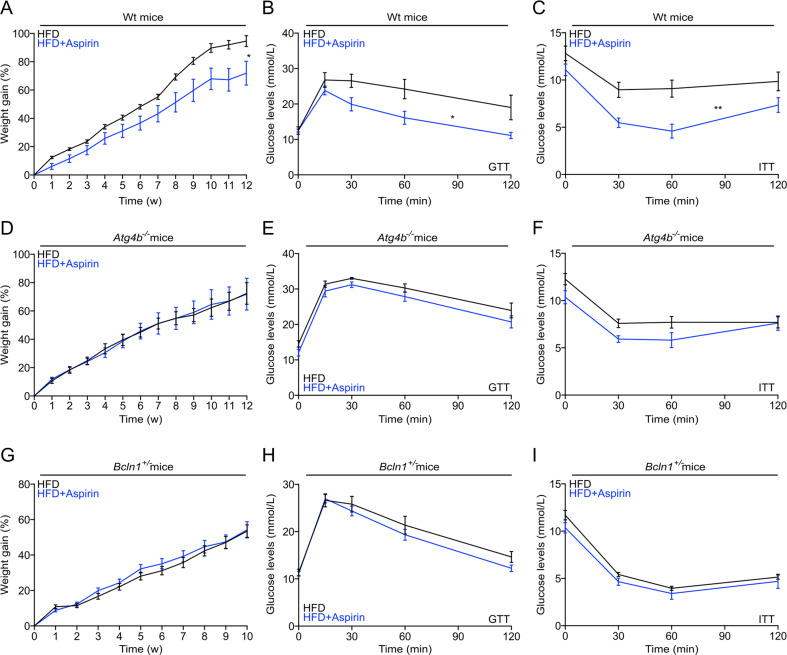Fig. 4. Autophagy-dependent effects of aspirin on weight gain in high-fat treated mice.
a, d, g Male mice with the indicated genotypes (WT, Atg4b−/− or Bcln1+/−) received high-fat diet (HFD) (WT mice: n = 10 mice/group; Atg4b−/− mice: Ctrl = 8 and aspirin = 9 mice; Bcln1+/− mice: Ctrl = 17 and aspirin = 20 mice) for at least 10 weeks in presence, or not, of daily gavage aspirin administration (100 mg/kg in EBSS). Body weight was monitored weekly, and glucose (b, e, h) or insulin (c, f, i) tolerance tests were performed after 6–11 weeks of treatment (WT mice: GTT Ctrl = 7 and aspirin = 9 mice, ITT Ctrl = 7 and aspirin = 10 mice; Atg4b−/− mice: GTT and ITT Ctrl = 7 and aspirin = 9 mice; Bcln1+/− mice: GTT Ctrl = 14 and aspirin = 16 mice, ITT Ctrl = 14 and aspirin = 14 mice). For statistical analysis, longitudinal statistical comparisons for mice weight gain, were performed by Wald test (a, d, g) (*p < 0.05); p values were determined by two-tailed unpaired Student’s t test (for b, e, h and c, f, i as areas under the curve (AUC) in Fig. S3A–S3C) comparing aspirin-treated to untreated mice, (*p < 0.05, **p < 0.01). Atg4b autophagy-related protein 4 homolog B, Bcln1 Beclin 1, GTT glucose tolerance test, HFD high-fat diet, min minutes, ITT insulin tolerance test, w weeks.

